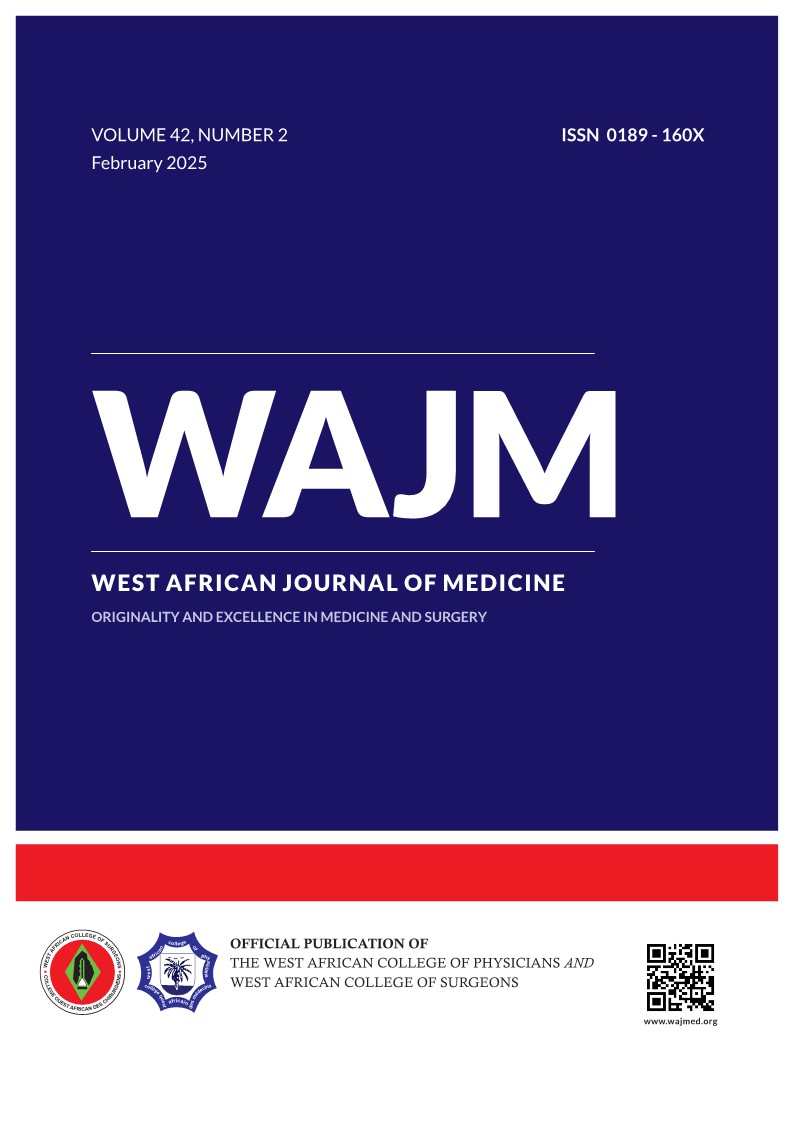ORIGINAL ARTICLE: Post-Traumatic Stress Disorder in the Epicenter of the Boko Haram Insurgency: Prevalence and Psychosocial Correlates
West Afr J Med February 2025; 42 (2):104-113 PMID: 40618382
Keywords:
Boko Haram insurgency, Post Traumatic Stress Disorder, Prevalence, Psychosocial correlateAbstract
Background: The 'Boko Haram insurgency' is one of the most devastating armed conflicts that the Nigerian State has experienced in the post-civil war era. The quantum of destruction in terms of lives and property is beyond rational comprehension as it left in its trail both physical and psychological traumata. Post-traumatic stress disorder (PTSD) is one of the psychological sequelae of violent conflicts globally, with prevalence rates of up to 72% in sub-Saharan Africa.
Objectives: The main objectives of this study were to assess the prevalence rate of PTSD as well as to examine its psychosocial correlates among the residents of Maiduguri, which is the epicentre of the armed insurrection.
Methods: This was a multi-staged, cross-sectional, community-based random study conducted among the residents of Maiduguri. A total of 378 residents of Maiduguri Metropolitan Council were interviewed in 2017, eight years after the onset of the insurgency. Predesigned Sociodemographic Proforma, Modified version of the Communal Traumatic Events Inventory (CTEI), PTSD checklist civilian version (PCL-CV), PTSD Module of the Composite International Diagnostic Interview (CIDI), Rosenberg Self-Esteem scale (RSES), and the Connor-Davidson Resilience Scale (CD-RISC) were administered. Bivariate analyses were used to explore the associations between the psychosocial variables and PTSD diagnosis, while Binary logistic regression was conducted to determine the independent predictors of PTSD.
Results: The prevalence of PTSD among the residents of Maiduguri was 54.49% using the PTSD Module of CIDI. The study also found that 57.2% (CI 53.4 - 60.1) of the study participants had experienced between 5 to 10 traumatic events. PTSD was significantly associated with; gender, exposure to multiple traumatic events (P <0.001), history of Abuse (p = 0.032), lower self-esteem (p <0.001), and lower levels of resilience (p <0.001).
Conclusion: Sub-syndromic PTSD was experienced by over two-thirds of the study participants, while over 50% of them had CIDI-diagnosable and clinically matched PTSD based on the ICD-10 criteria. This study, therefore, recommends the need for the incorporation of mental health and psychosocial support and the prioritization of the mental health of populations exposed to any form of armed insurrection.


